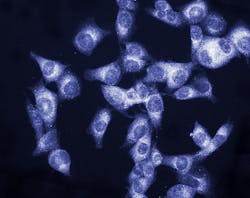FDA approves first cellular therapy to treat patients with unresectable or metastatic melanoma
The U.S. Food and Drug Administration approved Amtagvi, a cellular therapy indicated for the treatment of adult patients with a type of skin cancer (melanoma) that is unable to be removed with surgery (unresectable) or has spread to other parts of the body (metastatic) that previously has been treated with other therapies (a PD-1 blocking antibody, and if BRAF V600 mutation positive, a BRAF inhibitor with or without a MEK inhibitor).
Amtagvi is a tumor-derived autologous T cell immunotherapy composed of a patient’s own T cells, a type of cell that helps the immune system fight cancer. A portion of the patient’s tumor tissue is removed during a surgical procedure prior to treatment. The patients’ T cells are separated from the tumor tissue, further manufactured and then returned to the same patient as a single dose for infusion. This is the first FDA-approved tumor-derived T cell immunotherapy.
Amtagvi was approved through the Accelerated Approval pathway.
The safety and effectiveness of Amtagvi was evaluated in a global, multicenter, multicohort clinical study including adult patients with unresectable or metastatic melanoma who had previously been treated with at least one systemic therapy, including a PD-1 blocking antibody, and if positive for the BRAF V600 mutation, a BRAF inhibitor or BRAF inhibitor with an MEK inhibitor. Effectiveness was established based on objective response rate to treatment and duration of response (measured from the date of confirmed initial objective response to the date of progression, death from any cause, starting a new anti-cancer treatment or discontinuation from follow-up, whichever came first). Among the 73 patients treated with Amtagvi at the recommended dose, the objective response rate was 31.5%, including three (4.1%) patients with a complete response and 20 (27.4%) patients with a partial response. Among patients who were responsive to the treatment, 56.5%, 47.8% and 43.5% continued to maintain responses without tumor progression or death at six, nine and 12 months, respectively.
Patients treated with Amtagvi may exhibit prolonged severe low blood count, severe infection, cardiac disorder, or develop worsened respiratory or renal function or have fatal treatment-related complications. A Boxed Warning is included in the label containing information about these risks. Patients receiving this product should be closely monitored before and after infusion for signs and symptoms of adverse reactions. Treatment should be withheld or discontinued in the presence of these symptoms, as indicated.
The most common adverse reactions associated with Amtagvi included chills, fever, fatigue, tachycardia (abnormally fast heart rate), diarrhea, febrile neutropenia (fever associated with a low level of certain white blood cells), edema (swelling due to buildup of fluid in body tissues), rash, hypotension, hair loss, infection, hypoxia (abnormally low oxygen levels in the body) and feeling short of breath.
Amtagvi also received Orphan Drug, Regenerative Medicine Advanced Therapy, Fast Track, and Priority Review designations.





